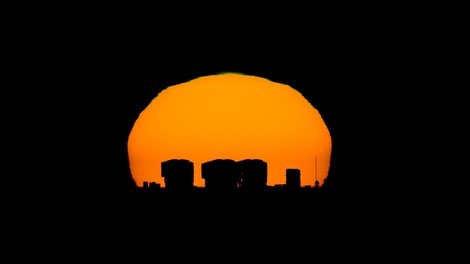Your podcast discovery platform
Curious minds select the most fascinating podcasts from around the world. Discover hand-piqd audio recommendations on your favorite topics.

piqer for: Climate and Environment Global finds Globalization and politics
I'm a freelance journalist, currently based in Madrid. I used to be a News Producer at CNBC in London before, but I thought a little bit more sun might do me good. Now I write for several news organizations, covering a range of topics, from Spanish politics and human rights for Deutsche Welle to climate change for La Marea.
Why Don't People Care About Climate Change?
Last Monday, a study on the possibilities of avoiding a temperature rise of +2ºC before 2100 was published in Nature Climate Change. According to the research, we have approximately 5% chances to stay below that limit.
I covered the story for Spanish magazine La Marea. I tried to make sure that I explained why the 2ºC is an important limit: Anything above that is surely catastrophic. Actually, even 2ºC is too dangerous and more ambition is required.
As I usually do, I lingered a bit in Facebook and Twitter after publication to see the reactions and get feedback from the readers. A few comments started coming up, but they weren't what I expected.
"Those who are still here will have some fun," said a user. "Screw those who are still here," said another. What? I considered replying, explaining them that the changes won't happen suddenly in a day, a hundred years from now. I didn't do it. I couldn't say it better than I already had.
So how close do we need to be to a catastrophe to actually care? Isn't this one near enough? That's what astrophysicist Marcelo Gleiser reflects about in this article. Understanding that catastrophic change is around the corner (within the lifetime of today's children, tops), he wonders what are we doing to cope with the consequences.
Gleiser draws heavily from Daniel Wallace-Wells' famous article for New York Magazine. Although I've already criticised his text, I agree that, even if those disasters never happen, the mere possibility should put us to work.
Glesier concludes that, eventually, people will wake up ... too late?
We will react under pressure, even if, by then, it will be too late to reverse or even slow down, in any relevant way, the warming trend.
This piece struck me, precisely because of this recent experience with people who, naively, consider themselves out of danger. So maybe we should focus on the solutions and abandon the disaster porn for now? It doesn't seem to be working anyway.
